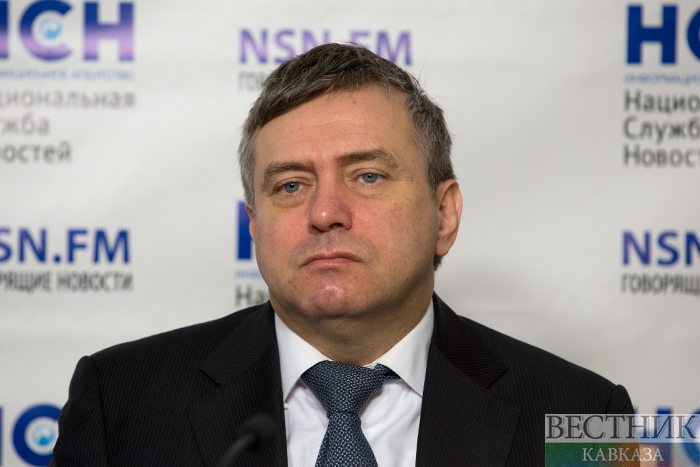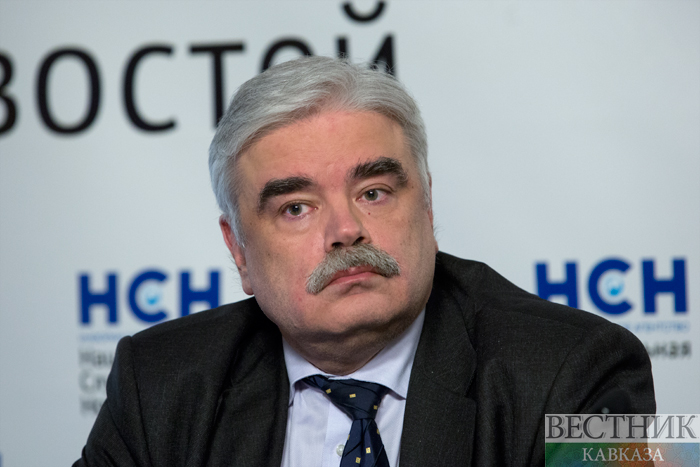Russia's Investigative Committee said that six people suspected of involvement in the metro terrorist attack on April 3 were detained in St. Petersburg yesterday. During a search at the suspects' place an explosive device was found, similar to one which did not explode on the Ploshchad Vosstaniya metro station. Two more suspects in the preparation of the terrorist attacks were detained in Moscow. Their involvement in activities of the terrorist groups banned in Russia has not yet been reported.
Meanwhile, the president of the information-analytical center ‘Religion and Society’, Alexei Grishin, believes that the ISIS group changed its tactics in the megacities: "Previously, they counted on big terrorist attacks with a massive defeat of people, but for this purpose it is necessary to employ 100-150 people, someone is obliged to bring ammunition and weapons, someone - explosives. As the special services are conducting preventive work, agencies are working, at some stage terrorists could fail. Turning to the new tactics of the so-called 'petty foul' and 'small' terrorist attacks, they essentially limit preventive capabilities of special services, including the agency work. The probability of preventive detection is declining. " According to Grishin, the goal of terrorists is to destabilize the situation in most European countries, including Russia.

Alexey Grishin
The head of the department of medical psychology of the Mental Health Research Center of Russian Academy of Medical Science, the head of the Department of Criminal Psychology, Faculty of Juridical Psychology at the Moscow State University of Psychology and Education (MSUPE), Sergey Enikolopov, told about the effect of information about terrorist activity on the society: "Even those who knew about it from media should be considered a possible victim. Some of them will have symptoms of post-traumatic stress disorder for some time as immediate participants. The difficulty of working with these people is that they cannot compare their poor state of health with what they saw on TV. Those who was on the spot, saw it all with their own eyes, can understand why they have flashbacks, irritability, insomnia, depression. But the people who watch TV can have 20% of this symptom.

Sergey Enikolopov
According to the psychologist, the media should understand that terrorists count on the picture they showed: "The diverging circles of the terrorist attack not only undermine the attitude to the state and authorities, but actually advertise the terrorist movement. After each terrorist attack there is an influx of terrorists in all countries. This is not a question of censorship. They cannot show scared people in such numbers, look for any eyewitness who says something: "I'm terrified, I'm worried ..." Filter what people say! ".

Kirill Yankov
Chairman of the Union of Russian Passengers Kirill Yankov believes that they should not close the St. Petersburg metro on the day of the terrorist attack: "The Moscow metro would continue to operate in such situations. I still do not understand who ordered to close all the stations in St. Petersburg. Perhaps, it was the emotional reaction of some not very competent leader, which created a collapse in the city. In addition, apparently, the city did not have a backup plan for such a situation, when buses are removed from routes of short length and the routes of transportation are organized in parallel with the metro stations. At the same time, traffic police officers go out on tracks, clean them from other cars and give buses the opportunity to replenish these mass transportations. Either St. Petersburg did not have such a plan, or it was not put into operation in time."

Alexander Mikhailov
A retired Major-General of the FSB, a ranger, the ex-head of the Agency of Government Information of the Russian Federation, a member of the Council on Foreign and Defense Policy, Alexander Mikhailov, said that the Federal Security Service has carried out many effective operations recently: "A huge number of terrorist groups were liquidated, I would say that we do not take prisoners now, we do not leave terrorists to go free. We just have to proceed from the fact that there are things that can be done, and there are things that are outside the zone of possible realization. "






